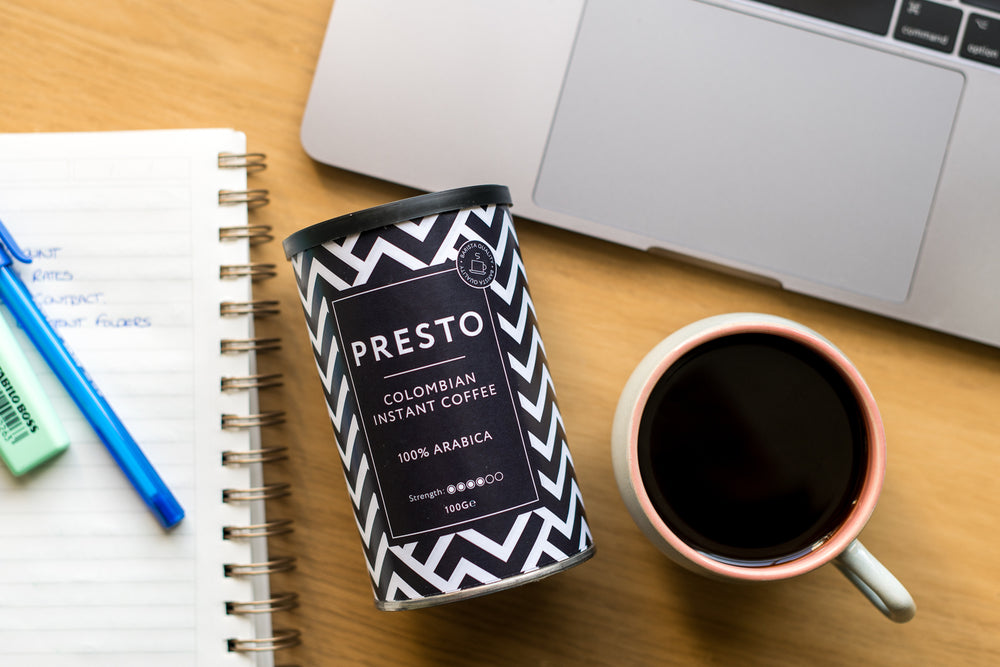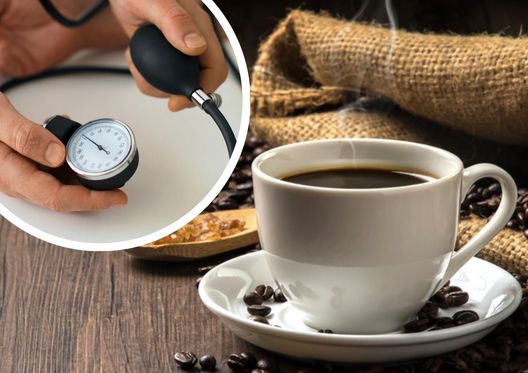Have you ever wondered if instant coffee is a good choice for your morning routine? In today's fast-paced world, many of us look for quick and easy solutions for everything, including our beloved cup of coffee. Instant coffee, also known as coffee powder or coffee sachet, has become a go-to option for people everywhere. But what exactly is instant coffee, and why do so many people choose it? Is it just about convenience, or is there more to this coffee phenomenon? Whether you're a fan of the instant coffee or just curious about how much caffeine is in instant coffee, we've got you covered. Let's dive into the world of instant coffee and see what it's all about.
What Is An Instant Coffee?
So, what is instant coffee? Instant Coffee, also known as freeze-dried coffee or dehydrated coffee, is just regular coffee that's been brewed and then had all the water removed. This leaves behind a dry powder or crystals that can magically turn back into coffee when you add hot water. It's kind of like a coffee version of instant magic!
How is Instant Coffee Made?
Here's a simpler breakdown of the steps:
- Choosing Beans: Pick the right and the Whole Bean Coffee for flavor.
- Roasting: Roast the beans to bring out the coffee taste.
- Grinding: Grind the roasted beans into a coarse powder.
- Brewing: Make a strong, concentrated coffee by brewing the ground beans with hot water.
- Concentrating: The brewed coffee is concentrated further to increase its strength.
- Drying: Now, take out the water to turn this concentrate into dry coffee. This can be done by:
- Spray Drying: Spray the liquid coffee into a hot air chamber to quickly turn it into a fine powder.
- Freeze Drying: Freeze the liquid coffee, then break it up and dry it in a vacuum to remove the water without losing flavor.
- Packaging: Lastly, pack the dried coffee. This freeze-dried coffee or dehydrated coffee is ready to be turned back into a drink with some hot water.
Acrylamide in Instant Coffee: What You Need to Know
So, you've heard the word "acrylamide" floating around and are wondering if you should be worried about your daily coffee ritual. Let's break down what this all means without getting too science-y.
What’s This Acrylamide Thing Anyway?
- Acrylamide is a fancy science term for a type of chemical that can show up in our food and drink when they're cooked at high heat. Think of it as a side effect of cooking. This chemical isn't just in your coffee; it's in baked goods and even some of the crispy snacks we love. It’s also used for making plastics and cleaning water, and too much of it can be a bad thing, especially in the workplace where it can mess with your nerves and might increase the risk of getting cancer.
But What About My Coffee?
- When coffee beans are roasted, acrylamide comes along for the ride. It’s a natural part of the process and not something you can just wash off. Depending on how dark your coffee is roasted, the amount of acrylamide can vary.
Is Acrylamide Really Bad for Me?
- In really high doses, like the kind some workers might be exposed to, acrylamide can be harmful. Animal studies have shown that very large amounts might lead to cancer. But here's the kicker: the amount of acrylamide these animals were exposed to is way, way more than you'd ever get from your diet. Plus, our bodies handle acrylamide differently and break it down, so the actual amount we're exposed to is less worrying.
So, Should I Stop Drinking Coffee?
- Not at all. While acrylamide sounds scary, the amount in coffee isn't something to lose sleep over, especially when you compare it to the benefits. Drinking coffee has actually been linked to some pretty good stuff, like lowering your risk of liver cancer and other diseases. Plus, it's been a part of our diet for ages, long before we even knew what acrylamide was.
What’s the Deal with Coffee Types?
- All coffee isn't created equal when it comes to acrylamide. Instant coffee has about twice as much of this chemical as fresh roasted coffee, and those coffee substitutes? They're at the top of the list. But, if you're into dark, well-roasted beans, you're in luck because they tend to have the least acrylamide.
Bottom Line
- While acrylamide is definitely something scientists are keeping an eye on, your morning cup of coffee is more friend than foe. There's no need to cut coffee out of your life. It's all about enjoying it in moderation and reaping the benefits of those other health-boosting compounds in your brew.
Easy Steps to Lower Acrylamide in Your Coffee
Love your coffee but concerned about acrylamide? You're not alone. While it's almost impossible to completely avoid acrylamide, especially if coffee is a non-negotiable part of your day, there are simple ways to reduce your exposure. Here's how:
Choose Your Coffee Wisely
- Go for Dark Roast: Darker roasts have less acrylamide than lighter ones. So, if you enjoy your coffee strong, you're in luck.
- Skip the Instant: Instant coffee has more acrylamide. Whenever possible, opt for fresh brewed coffee. It tastes better, too!
Brewing Matters
- How you make your coffee can also play a part. While the brewing process itself doesn't significantly affect acrylamide levels, starting with a dark roast and avoiding instant powders can make a difference.
Lifestyle Tweaks
- Storage: How you store your coffee beans doesn't directly impact acrylamide, but fresh is always best. Keep your beans in a cool, dark place.
- Mind the Moderation: Like everything, moderation is key. Enjoying a couple of cups of coffee a day is perfectly fine.
What are the Benefits of Instant Coffee?
You might think sometimes, is instant coffee bad for you? Believe it or not, instant coffee isn't just a quick caffeine fix; it comes with its own set of health perks. And with Presto Coffee providing top-notch instant coffee, you get the added advantage of quality with every cup. Here are some health benefits that might make you appreciate your instant brew even more:
- Antioxidants: Instant coffee is loaded with antioxidants, just like regular coffee. These helpful compounds can protect your cells from damage and reduce inflammation, keeping you feeling healthy and strong.
- Boosts Brain Function: The caffeine in instant coffee doesn't just wake you up; it also sharpens your brain. Caffeine can improve memory, mood, and general brain function, giving you an edge during those early-morning meetings or late-night study sessions.
- Weight Management: Caffeine is a natural metabolism booster, and instant coffee has plenty of it. It can increase the rate at which your body burns fat, potentially helping with weight loss or maintenance. Just remember to enjoy it without too much sugar or cream if you're watching your calorie intake.
- Lower Risk of Some Diseases: Regular consumption of instant coffee may be linked to a lower risk of certain diseases, including Parkinson's and Type 2 diabetes. It's the caffeine and antioxidants working together to offer these protective benefits.
- Good for the Liver: Your liver loves instant coffee too. Studies suggest that coffee drinkers have a lower risk of liver diseases, including liver cancer and fibrosis. It seems that the more coffee you drink, up to a point, the happier your liver might be.
- Improves Mental Health: Enjoying a cup of instant coffee from Presto Coffee might also boost your mood. Caffeine has been associated with a lower risk of depression and may even decrease the risk of suicidal thoughts.
- Convenient Source of Nutrients: Instant coffee contains essential nutrients like potassium, magnesium, and B vitamins. While it’s not a substitute for a balanced diet, it's a nice bonus to your daily nutrient intake.
- Heart Health: Moderate coffee consumption is linked to a lower risk of heart disease. The key is moderation, as too much caffeine can lead to negative effects.
Concerns and Misconceptions about Instant Coffee
Health Concerns
- When it comes to our health and what we consume, it's crucial to separate fact from fiction. A common worry is whether instant coffee is bad for you or is instant coffee bad for your health. Another concern that often comes up is instant coffee fattening.
- Instant coffee, despite being criticized for its health benefits, is rich in antioxidants and may reduce the risk of diseases like Parkinson's and type 2 diabetes. It's important to consume it in moderation, as excessive consumption can cause sleep disturbances or increased heart rate.
- Black instant coffee contains almost no calories, and its calorie content increases only when milk, sugar, or cream are added, making it a suitable addition to a weight-conscious diet.
Nutritional Information
- Plain black coffee, whether it's instant or brewed, contains very few calories, typically around 2 to 5 calories per cup. This negligible calorie count makes it an excellent choice for those watching their weight or trying to maintain a healthy diet.
- However, when you venture into instant coffee with milk calories, that's when the calorie count can start to climb, depending on the type of milk and the amount of sugar you add. For instance, adding a splash of whole milk can add about 9 calories per tablespoon, and a teaspoon of sugar adds about 16 calories. Thus, the caloric content of your coffee is largely within your control based on how you prefer to enjoy it.
- Instant coffee is good for most people when consumed in moderation. It is not inherently fattening, nor is it bad for your health. Like anything else, the key is to enjoy it as part of a balanced diet. By understanding the actual calories in coffee and making choices that fit your dietary needs, you can continue to enjoy instant coffee without worry.
Instant Coffee Vs Regular Coffee
Wondering about the differences between instant coffee and regular coffee? It's all about speed vs. flavor. Instant coffee offers a quick cup with no fuss, perfect for busy mornings. Regular coffee takes a bit more time but rewards you with richer flavors. Let's dive into the differences of instant coffee vs. regular coffee to see what suits you best.
|
Aspect |
Instant Coffee |
Regular Coffee |
|
Preparation |
Just add hot water to the coffee powder or coffee sachet. Instant magic! |
Needs brewing, either in a coffee maker or by hand. Takes more time. |
|
Taste |
Can be really good, but some say it's a bit different from brewed coffee. Great instant coffee options are improving this. |
Known for its fresher taste and more flavor options. Good instant coffee is catching up, though. |
|
Convenience |
Super convenient. No equipment needed, perfect for quick fixes. |
Requires a coffee maker or brewing equipment. Not as quick. |
|
Cost |
Generally cheaper. You get more cups per package. |
Can be more expensive, depending on the type of beans and brewing method. |
|
Variety |
Limited to what's available in coffee powder or sachet form. |
Huge variety. Different beans, roasts, and grinding options. |
|
Caffeine Content |
Caffeine in instant coffee varies, but it's usually slightly less than regular coffee. |
Typically has more caffeine per cup, depending on how it's brewed. |
|
Shelf Life |
Longer shelf life. Easy to store and lasts for months. |
Best used fresh. Ground coffee loses flavor over time. |
|
Environmental Impact |
Less waste per cup since it's just the powder and packaging. Freeze-dried coffee can be efficient. |
Brewing methods and coffee grounds can generate more waste, but options for composting exist. |
How to Determine the Best Instant Coffee?
Finding the best instant coffee might feel difficult sometimes, but it's simpler than you think, especially with Presto Coffee leading the charge. Here's what sets the best apart from the rest, and how Presto Coffee stands out:
- Quality of Beans: The journey to the best instant coffee starts with the beans. Great instant coffee comes from high-quality beans sourced from the best coffee-growing regions. Presto Coffee prides itself on selecting only the finest beans, ensuring a good instant coffee experience with every cup.
- Sourcing Practices: Ethical sourcing is key to what is the best instant coffee. It's not just about the taste; it's about supporting sustainable practices and fair compensation for coffee growers. Presto Coffee is committed to ethical sourcing, which means every sip supports a good cause.
- Advanced Processing: The magic behind the best instant coffee lies in how it's made. Advanced processing techniques like freeze-drying help preserve the coffee's natural flavors and aroma. Presto Coffee utilizes such methods to ensure that their instant coffee delivers a great and strong coffee experience that rivals fresh brews.
- Flavor Profile: What makes great instant coffee? A rich and satisfying flavor that delights your taste buds. Presto Coffee offers a range of flavor profiles, from bold and strong instant coffee to smooth and mild blends. There's something for every coffee lover in their collection.
- Versatility: The best instant coffee can cater to all tastes and occasions. Whether you prefer it black, with milk, or as a base for your favorite coffee concoctions, Presto Coffee's instant variety has you covered. Plus, our offering of Ground Coffee, Fresh Coffee, and Coffee Bag means there's always a perfect coffee for your preferred brewing method.
- Convenience and Freshness: Lastly, the best instant coffee combines convenience with freshness. Presto Coffee's instant options are designed to deliver a fresh and flavorful cup every time, quickly and without fuss. Perfect for busy mornings or when you need a quick pick-me-up.
Looking for the best soluble coffee? Presto Coffee has got what you need. Their coffee is super tasty and easy to make.
Conclusion: Is Instant Coffee Your Quick Fix Friend or Foe?
So, you've got a jar of instant coffee in the kitchen, and you're wondering, is this stuff actually good for me, or am I just settling? Let's break it down with some simple tips on how to make the most out of your instant coffee, without all the coffee snob jargon.
Getting It Just Right
- Finding the perfect strength for your instant coffee can feel like a guessing game, but it doesn't have to be. Think of it like this: start with one or two teaspoons of coffee powder for every mug of water (that's about 8 ounces or a regular cup). Not strong enough? Add a bit more coffee until it hits the spot.
Creamy or Not?
- Love your coffee creamy? You're not alone. Mixing your instant coffee with milk instead of water can take it from "meh" to "more please!" Whether you're using milk powder or liquid milk, the amount doesn't change. Just warm the milk first for that cozy feel. But remember, adding milk means adding calories, so if you're watching your waistline, skimmed or plant-based milk might be your best bet.
What About the Calories?
- Speaking of calories, instant coffee on its own is pretty much calorie-free. But throw in regular milk, and you're looking at an extra 20 to 50 calories per cup. Not a deal-breaker, but something to keep in mind if you're counting.
Flavor Hacks
- Want to spice up your instant coffee game? A pinch of cinnamon or cocoa powder can turn your everyday cup into a gourmet experience, with hardly any extra calories. It's a simple way to make your coffee more interesting.
Not Just for Hot Coffee
- Who said instant coffee is just for hot drinks? For a cool treat, dissolve your coffee in a bit of hot water, then mix it with cold water or milk, throw in some ice, and sweeten it up as you like. It's the perfect quick fix for those warm days.
So, Good or Bad?
- Instant coffee gets a lot of flak, but here's the deal: it's all about how you use it. Sure, it might not have the gourmet appeal of freshly ground beans, but it's quick, convenient, and totally customizable to your taste. Plus, with a few simple tweaks, you can make it a delightful part of your daily routine without feeling like you're missing out.
- In the end, whether instant coffee is good or bad comes down to personal preference and how you enjoy it. It's not just a last resort; it's a practical choice for many of us who want our coffee fix without the fuss.
Frequently Asked Questions for Instant Coffee
Q: Is instant coffee as healthy as ground coffee?
A: Yes, instant coffee is quite similar to ground coffee in terms of health. Both contain antioxidants and vitamins essential for health, although instant coffee might have slightly lower levels due to the processing it undergoes. However, instant coffee is still a healthy choice with minimal chemical additives.
Q: How much caffeine is in instant coffee compared to regular coffee?
Instant coffee generally contains a bit less caffeine than regular brewed coffee. While a standard cup of brewed coffee might have 70-140 mg of caffeine, a similar amount of instant coffee contains about 30-90 mg, making it a better option for those watching their caffeine intake.
Q: Does instant coffee contain any harmful chemicals or additives?
A: Most instant coffee is simply coffee that's been brewed and then dried, without harmful chemicals or additives. Some flavored or specialty varieties may have added ingredients, so it's best to check labels if you have concerns.
Q: Can drinking instant coffee contribute to weight gain or loss?
A: Drinking plain instant coffee is unlikely to contribute to weight gain, as it's low in calories. However, adding sugar, cream, or flavored syrups can increase its calorie content, which could affect weight. Conversely, its low-calorie count can support weight loss efforts, especially when consumed black.
Q: Are there any specific health benefits or risks associated with drinking instant coffee?
A: Instant coffee shares many of the health benefits of regular coffee, such as improving mental alertness and potentially reducing the risk of certain diseases. However, excessive consumption may lead to increased heart rate or anxiety due to caffeine.
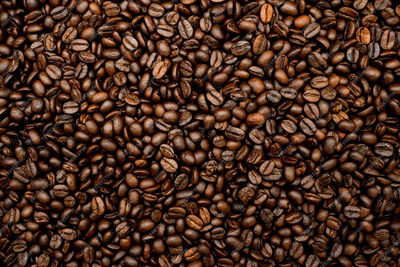
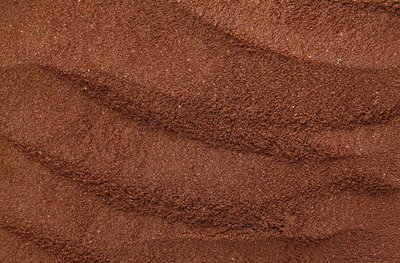
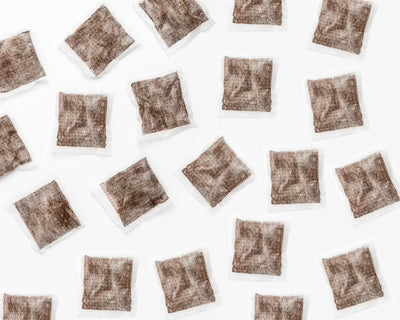
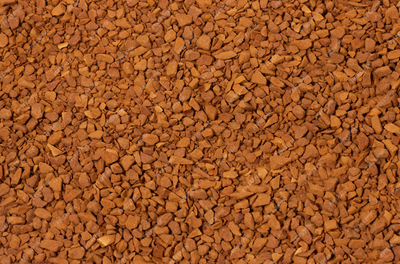


 Log in
Log in